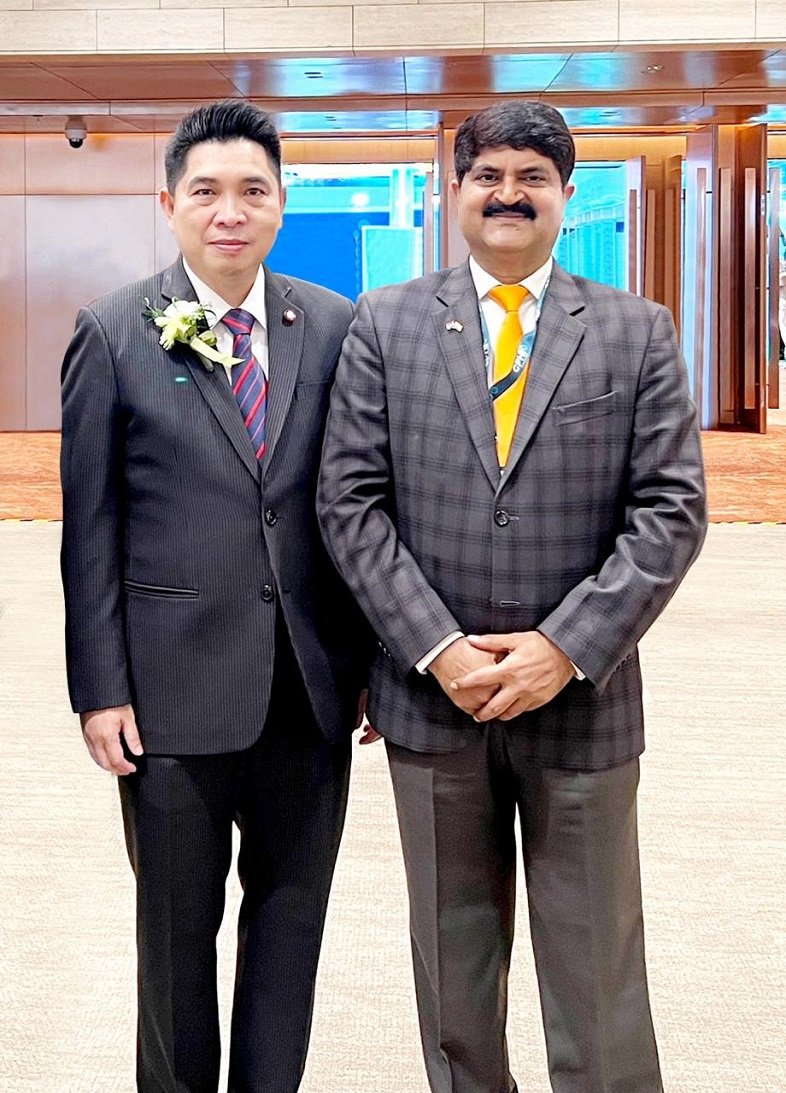Unlocking Innovation: Chakravarthi AVPS Shares Industry Wisdom in Thailand
Hyderabad, July 11th, 2024 ….The city’s industry veteran Chakravarthi AVPS was invited to speak at an industrial forum Global Framework for Biopharmaceuticals, Thailand at CPHI South East Asia. CPHI South East Asia 2024 is a conference platform for people in the pharmaceutical industry in Southeast Asia.
He spoke on the Role of Academia and Industry interactions in promoting Biotechnology and Trends in Biotechnology: Testing of Recombinant Neutralising Antibodies for Emerging Infectious Diseases
Biotechnology is a Disruptive Force in Medicine, Agriculture & Industry he said, and spoke about a few trends in this sphere.
Precision Medicine (Tailoring treatments based on individual genetics); Gene Editing (Precise DNA modification for potential cures and disease prevention); Immunotherapy: (Harnessing the immune system to combat cancer); Regenerative Medicine (Repairing tissues and organs with stem cells and engineering); Crop Improvement: (Creating resilient, high-yield crops with less environmental impact.
Alternative Proteins: Developing sustainable plant-based and cultured meats) were the topics dealt with in the session
Speaking about Academia-Industry Collaboration, it is the need of the hour, he said and added that Partnerships accelerate research translation into real-world solutions. The gap is widening so much Chakravarthi added that combining academic knowledge with industry resources for efficient development is the need of the hour.
While speaking about the Talent Pipeline, training the next generation of biotechnologists through collaborative projects is the way forward, he observed.
The Urgent Need is Of course Tackling Infectious Diseases, he said.
Further, Mr Chakravarthi added that the Pandemic highlights the importance of rapid diagnostics and vaccine development.
He spoke about a big threat that looms large, that’s Antimicrobial Resistance. Biotechnology offers solutions to combat drug-resistant infections.
Vigilance and research are crucial to identifying and addressing new pathogens, he concluded his 30-minute note by addressing
Mr. Chakravarthi AVPS, Advisor & Board member, International Affairs the Federation of Asian Biotech Associations (FABA) was the lead speaker besides two other specialists from India— Dr. Jagadeesh Gandla, Chief Operating Officer (FABA) spoke on the Role of Academia and Industry interactions in promoting Biotechnology and Dr. Harinarayana Rao Research Director (Retired), Reliance Life Sciences. EC member, (FABA) who spoke on Testing of Recombinant Neutralizing Antibodies of emergings.
On the sidelines, Chakravarthi also interacted with Thailand’s Vice minister for public health, Thanakrit Jitareer at officiating the launch of the event. Mr Jitareerat was buoyant on global collaborations for enhancing healthcare reach to more people.
The meeting which began yesterday will go on next two days and will conclude on July 12th.

